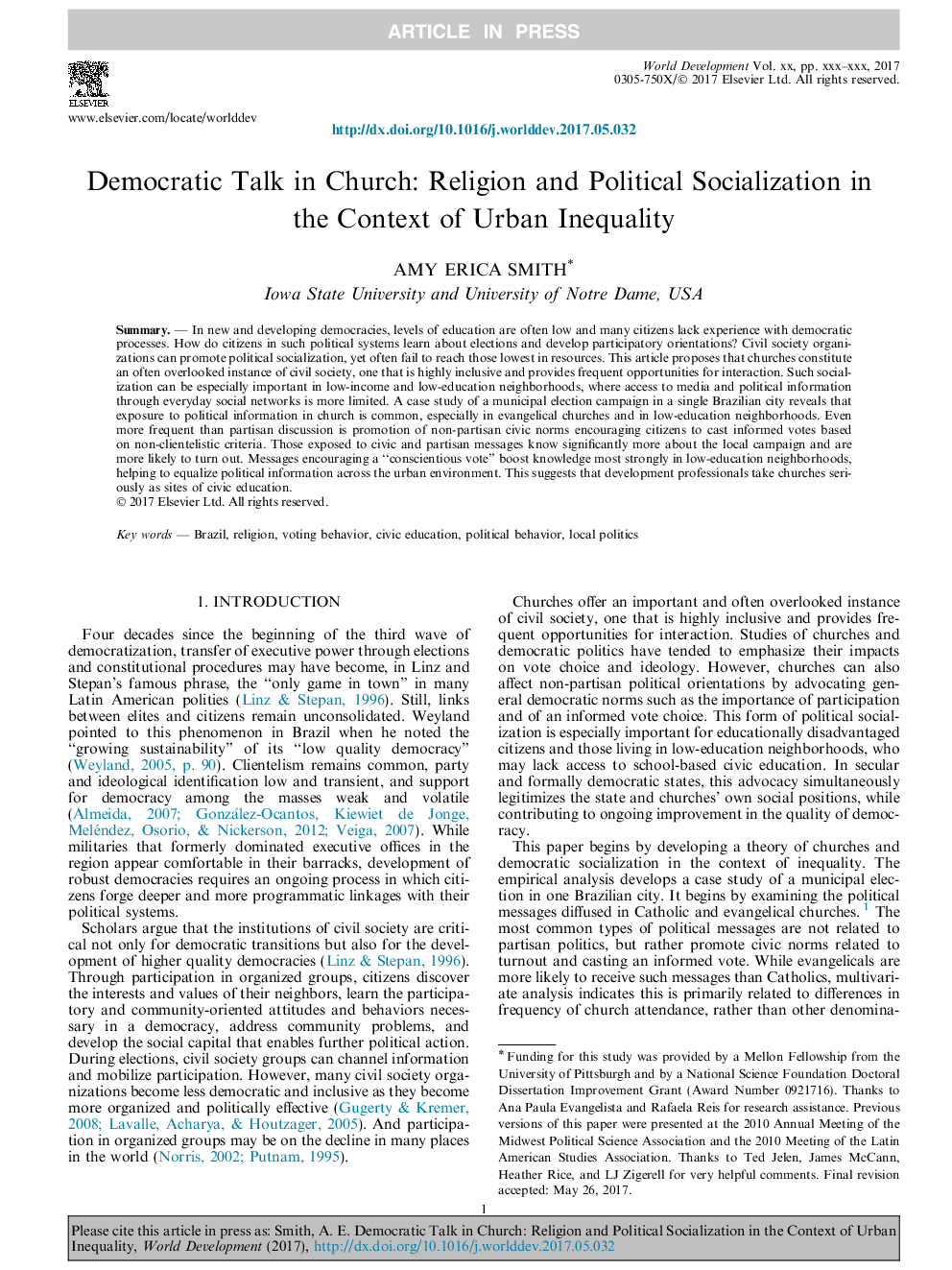ترجمه فارسی عنوان مقاله
بحث دموکراتیک در کلیسا: مذهب و اجتماعی شدن سیاسی در شرایط نابرابری شهری
عنوان انگلیسی
Democratic Talk in Church: Religion and Political Socialization in the Context of Urban Inequality
| کد مقاله | سال انتشار | تعداد صفحات مقاله انگلیسی |
|---|---|---|
| 127929 | 2017 | 11 صفحه PDF |
منبع

Publisher : Elsevier - Science Direct (الزویر - ساینس دایرکت)
Journal : World Development, Volume 99, November 2017, Pages 441-451
ترجمه کلمات کلیدی
برزیل، مذهب، رفتار رای گیری، آموزش مدنی، رفتار سیاسی، سیاست محلی،
کلمات کلیدی انگلیسی
Brazil; religion; voting behavior; civic education; political behavior; local politics;

